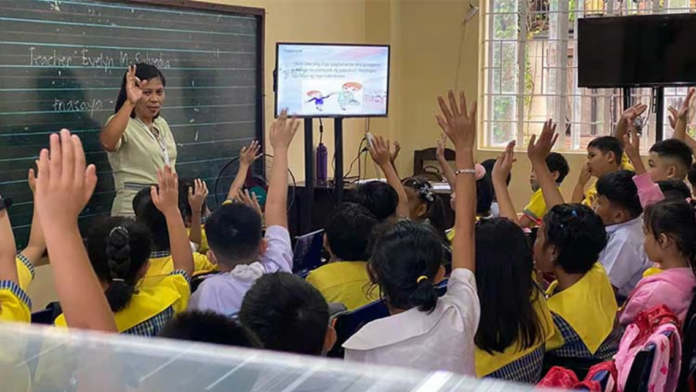The Alliance of Concerned Teachers (ACT) has petitioned President Marcos to repeal a newly passed law that prohibits teaching Kindergarten through third grade in the mother tongue. The Enhanced Basic Education Act of 2013, which required the use of the mother tongue as part of the Mother Tongue-Based Multilingual Education (MTB-MLE) program, was amended by the bill, which went into effect last week without Marcos’ signature.
ACT warned that the new law could impede efforts to address the ongoing education crisis and criticized the president for his inaction in allowing it to take effect. The use of the mother tongue has long been advocated as a priority language for early education by experts and the Department of Education (DepEd).
DepEd had previously maintained that teaching children in their mother tongue from an early age fosters a “strong foundation” in their native language before they acquire additional languages. According to ACT Chairman Vladimer Quetua, this foundation is essential for literacy development during the formative years.
Quetua noted that the primary challenge in implementing MTB-MLE has been the complexity of managing the country’s linguistic diversity within DepEd’s bureaucratic structure. This issue was also highlighted by the Second Congressional Commission on Education (EDCOM 2).
Despite opposition from advocacy groups in the education and cultural sectors, the law—now known as Republic Act 12027—was officially enacted on October 10. Critics argue that the law stifles efforts to teach students in their mother tongue, as required by the K–12 curriculum.
Quetua pointed out that the removal of mother tongue instruction from early education contradicts the goal of developing fundamental literacy skills. He emphasized that for young learners, the easiest and most effective way to learn to read and write is in their native language. He added that the use of the mother tongue also fosters an appreciation for local culture and helps preserve cultural identity.
In his 2022 State of the Nation Address, President Marcos stated that he favored increasing the use of English in education to improve Filipinos’ competitiveness in the global job market. However, Quetua expressed concern that this shift goes against the natural progression of learning languages: starting with the mother tongue, followed by Filipino, and then English.
Quetua argued that the true objective of this legislation is not to improve students’ mastery of essential skills but to increase their marketability to foreign employers. He also noted that the bill fails to address key challenges in implementing MTB-MLE, such as inadequate funding and support for teachers and students.




